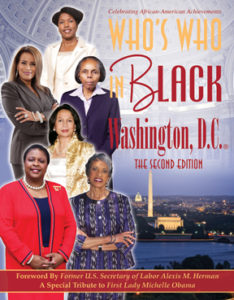
Washington has a growing, diversified economy with an increasing percentage of professional and business service jobs.

Achievements
Washington has a growing, diversified economy with an increasing percentage of professional and business service jobs.[108] The gross state product of the District in 2010 was $103.3 billion, which would rank it No. 34 compared to the 50 U.S. states.[109] The gross product of the Washington Metropolitan Area was $425 billion in 2010, making it the fourth-largest metropolitan economy in the United States.[110] As of June 2011, the Washington Metropolitan Area had an unemployment rate of 6.2%; the second-lowest rate among the 49 largest metro areas in the nation.[111] The District of Columbia itself had an unemployment rate of 9.8% during the same time period.[112]
In 2012, the federal government accounted for about 29% of the jobs in Washington, D.C.[113] This is thought to immunize Washington to national economic downturns because the federal government continues operations even during recessions.[114] However, as of January 2007, federal employees in the Washington area comprised only 14% of the total U.S. government workforce.[115] Many organizations such as law firms, independent contractors (both defense and civilian), non-profit organizations, lobbying firms, trade unions, industry trade groups, and professional associations have their headquarters in or near D.C. to be close to the federal government.[70]
The District has growing industries not directly related to government, especially in the areas of education, finance, public policy, and scientific research. Georgetown University, George Washington University, Washington Hospital Center, Children’s National Medical Center and Howard University are the top five non-government-related employers in the city as of 2009.[116] According to statistics compiled in 2011, four of the largest 500 companies in the country were located in the District.[117]
Washington became the leader in foreign real estate investment in 2009, ahead of both London and New York City, in a survey of the top 200 global development companies.[118] In 2006, Expansion Magazine ranked D.C. among the top ten areas in the nation favorable to business expansion.[119] Despite the national economic crisis and housing price downturn, Washington ranked second on the Forbes list of the best long-term housing markets in the country.[120]
